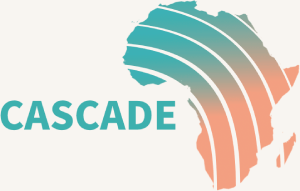Apr 15 2024
/
Addressing Climate and Health Disparities in Kampala: Insights from Judith Mbabazi

Judith Mbabazi, a PhD Fellow at Makerere University, discusses the evolving climate challenges and their health implications in Kampala, Uganda, in line with her research for the CASCADE project. Over the past decade, heavy rainfall has increasingly led to widespread flooding across Kampala, disproportionately affecting the 60% of the city’s population living in informal settlements. These weather events correlate with spikes in malaria and diarrhea, underscoring the urgent need for comprehensive research into these patterns.
Growing up in Banda, a suburb of Kampala marked by visible inequalities and the palpable impacts of climate change, Mbabazi was motivated to pursue her field of study from a young age. The lack of translated action on climate change and inclusive governance in her community propelled her towards research that not only addresses the scientific aspects of climate and health but also the socio-economic disparities that exacerbate these issues.
Her current project aims to characterize climate change impacts on vector habitats and malaria incidence, assess social disparities, and model future disease rates based on climate variability. Mbabazi hopes her work will illuminate the complex interplay between urban climate, social disparities, and health risks, providing a basis for more effective governance and intervention strategies.
Mbabazi’s research is crucial for crafting policies that address both the immediate and long-term challenges posed by climate change in urban settings. By integrating her findings into broader CASCADE objectives, she aims to foster interventions that are not only effective locally but can also inform global strategies to combat climate-health risks.
Looking ahead, Mbabazi believes that significant progress in mitigating climate-health challenges requires uncovering and understanding these intricate relationships. Her goal is that her research will contribute valuable insights that guide both local and international efforts to create healthier, more equitable urban environments.
